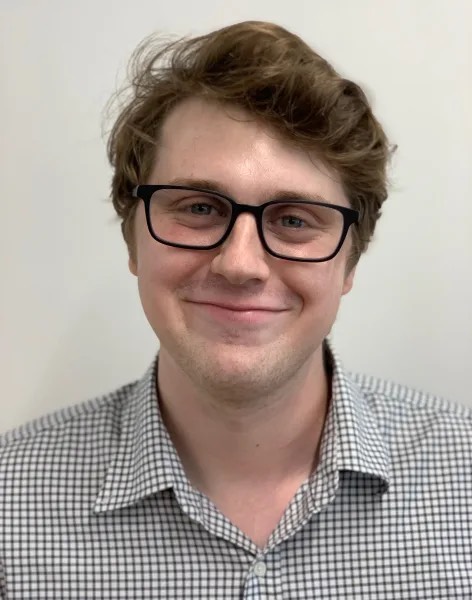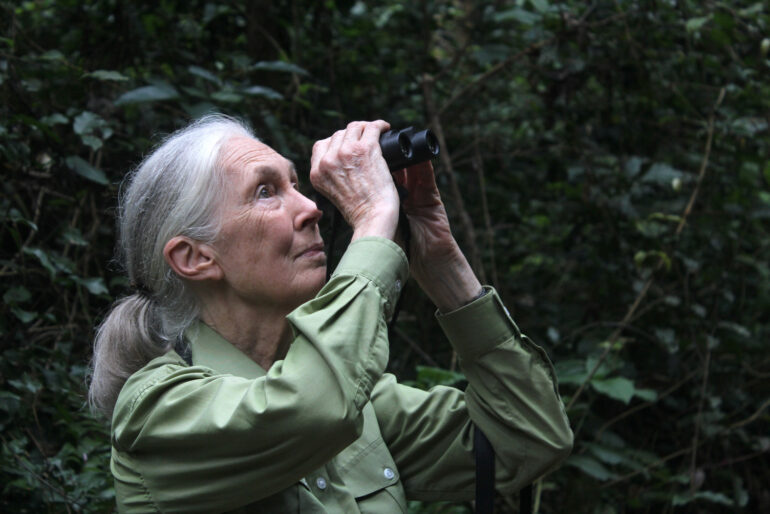To Jane Goodall, Chicago is more than just a pitstop on her voyage to save the environment. It is the place where the trajectory of her career was forever altered.
In front of a packed audience at the Chicago Theatre on her current “Inspiring Hope Through Action” tour, Goodall described attending a conference in 1986 involving the world’s top primatologists. She was exposed to the horror of how chimpanzees were treated in testing facilities and knew a shift in philosophy was needed in her field — and beyond it.
“I came to Chicago as a scientist, [planning] to spend the rest of my life in the Paradise of [Gombe National Park],” Goodall said. “And I left as an activist.”
Goodall, who turns 89 in April, has been living out of a suitcase ever since, touring around the world to emphasize the immediate attention environmental conservation needs from the human race. She is now back on her usual 300-day travel schedule following the apex of the pandemic to promote her program Roots & Shoots, which brings young people together to help tackle environmental issues.
During Goodall’s March 19 hour-long lecture, she revealed her three beliefs that suggest the world’s future can still be bright if enough people fight for it, including:
‘The Indomitable Spirit’ of People Who Take On What ‘Seems Impossible’
One of Goodall’s consistent pillars of her lectures is the importance of young people being active in saving the environment. Their participation, however, hasn’t always been a given. She described her encounters with young people in the 1980s and how their “lost hope for the future” was a reason for their lack of involvement.
“They were angry, depressed and apathetic,” Goodall recalled. “When I asked them why they felt this way, [they said, ‘Goodall’s generation] have compromised our future and there’s nothing we can do about it.’ Have we compromised their future? Not only compromise: we’ve been stealing their future probably since the industrial revolution.
“But was it true? Was there nothing to be done about it? ‘No,’ I told them. ‘It’s a window of time and if we fit together [we can] start changing behavior to slow down the existential threats that loom over us today.’”
Goodall pointed to Dr. Martin Luther King, Jr., and Nelson Mandela as prime examples of people whose “indomitable spirits” helped them persevere through their hardest challenges. She preached to the young audience in the room not to let what “seems impossible” deter their efforts for trying to build a better future for themselves and those who come after them.
View this post on Instagram
Nature Is Resilient
Goodall’s time as a researcher extends all the way back to 1960, where she has witnessed the damage done and undone to all aspects of nature. Seeing the rebirth of certain ecosystems once humans abandoned them gives her hope there will be places in the world that can be naturally revitalized.
“Go to a city and any little crack in the paving stone, little plants come through,” Goodall said. “Leave a place to the jungle and that place that was once a city will be taken over by the jungle. I’ve just seen so many people designing these projects which show that, give nature a chance, she will come back. Biodiversity will come back and this will help to slow down climate change.”
Goodall’s message is simple: Give nature a chance to return to its rightful form which in turn can alleviate years of destruction to the environment. Giving it that chance, she argues, requires effort from the collective whole.
View this post on Instagram
The Internet Creates Opportunities For Sustainability and Mobilization
Goodall’s optimism extended to what she has seen from people trying to promote sustainability online and believes they are “using the internet the right way.” From spreading alternative energy solutions to being able to offer people dietary changes that will improve the environment, Goodall has seen the upside in activists being able to virtually mobilize.
During the lecture, she encouraged people to transition to a plant-based diet, avoid kiling rats and to stop eating octopus. Spreading those messages now, compared to the inception of her career as a scientist, is much easier because of how expansive the internet has become, she notes.
“We need to collaborate and we need to form partnerships,” Goodall said. “We need to work together if we are going to get to the end of the tunnel.”
How to Help:
Get involved with Jane Goodall’s Roots & Shoots program, which brings young people together to help tackle environmental issues, and donate to the Jane Goodall Institute to protect chimpanzees, conserve critical habitat while strengthening surrounding communities, and empower the next generation of conservation leaders through initiatives like the Roots and Shoots program.
More from Better:
- Legendary Chef Alice Waters Discusses Slow Food, Seasonal Eating and Reawakening Kids’ Senses at Exec Club of Chicago Event
- Ravinia Festival Announces Summer Concert 2023 Schedule
- How To Help: 10 Organizations Providing Critical Support to Children, Youth and Families in Need Around Chicago

James Kay is a freelance reporter who has covered the Chicago Sky for the Chicago Tribune, MarketWatch and The Next Hoops. He hosts and produces a podcast covering the team called The Skyhook Podcast and is a mass communications/journalism graduate from the University of Iowa.

